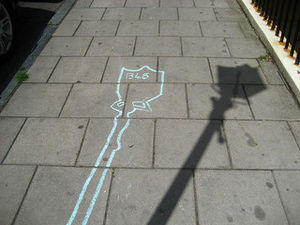Getting started
| APL Full Qualification | |
|---|---|
| APL Full Qualification Course Guide | Introduction & Learning Outcomes | Video signpost | Getting started | Resources | Teaching approach | Your schedule |
| Assessment | APL assessment | Assessment timeline plan | Developing an assessment portfolio | Portfolio marking criteria |
Below is a broad outline of the process I recommend you go through to prepare for your presentation for the GDTE.
Teaching Philosophy or Framework - Schonwetter, et al (2003) posit a conceptual framework for generating or evaluating a teaching philosophy that includes the following:
- definition of teaching
- definition of learning
- view of the learner
- goals and expectations of the student teacher relationship
- discussion of teaching methods
- discussion of evaluation
It is framed within a strong understanding of the institutional context in which you work and is brought to life by the use of critical incidents underpinned by reflective practice.
A teaching philosophy is totally personalised. This is yours to name, frame and claim! There are many other views written on what makes a strong teaching philosophy and also why a well-developed one is useful, even while always developing! Take a look at this [link] from the former for further ideas.
To get started reflect on what learning means to you and others; what does teaching mean to you and others; how does your approach to teaching impact on learners?
The following quote may make you think deeply about conceptions of teaching and learning.
“It is the process of learning that is important; that there is only the journey, never the destination… what I am referring to is the process of unlearning; the attempt to access our inner knowings; the coming face to face, again and again, with our ignorance; with our not-knowing.… the highest point of knowing is not knowing. Herein lies the paradox of learning from experience. (Brew, 1993)
In preparing for your GDTE APL assessment it is helpful to look back at what has influenced the way you think about learning and teaching. We all remember teachers we have had – the good the bad and the ugly!- think about what made them so memorable. What impact did they have on your learning? What did you like or dislike about their teaching? What did you learn from them about teaching and learning?
You may also want to talk with colleagues or interview learners to find out what their perspectives are as well.
Now think about your learning context – how has tertiary education changed in the time you have been teaching? What influences your current teaching context? How does the strategic direction and goals of Otago Polytechnic influence what you do in the classroom or when planning course developments?
What does current research about tertiary teaching show us? How does this research impact on or shape your beliefs about teaching and learning? How do we measure the learning that our students do?
Who are your students? How do they learn? What are their beliefs about learning and teaching? What are the implications for your teaching?
What is a discipline? How do students learn in your discipline? What impact does this have on how you think about teaching and learning?
There are many ways to present your Teaching Philosophy and many people find a visual metaphor a helpful way to show the integration of all aspects of consideration and also the organic, ongoing nature of such a statement. Because this is such a personal statement it is important that you present it in a way that you are happy with.
References
Brew, A. (1993). Unlearning through experience. In D. Boud, R. Cohen, & D. Walker, D., (Eds.). Using experience for learning. Buckingham: Society for Research into Higher Education and Open University Press.
Schonwetter, D. J., Sokal, L., Friesen, M. & Taylor, K. L. (2002). Teaching philosophies reconsidered: A conceptual model for the development and evaluation of teaching philosophy statements. The International Journal for Academic Development, 7(1).
Overview of process
- Develop a reflective narrative identifying the influences on learning and teaching in your life, think about what your beliefs and values are around teaching and learning and what or who has influenced these
- Develop your personal teaching philosophy . This will include your thoughts about how your students learn, how your institutional context impacts on the way you develop and deliver learning, how the culture of your specific discipline shapes the way you develop and deliver learning and how your own personal and professional development goals contribute to increasing your understanding of and integration into practise of these aspects
Reflect on your current and recent practice in relation to the following areas:
- Scholarly practice around teaching and learning and professional teaching development
- Learner Centred Learning and supporting theory
- Assessment
- Curriculum design/development
- Developing and maintaining a community of practice, both internally (to your teaching institution) and externally, as an expert practitioner
- Developments and trends in tertiary education, technology and practice
- Integral throughout all identified above is cultural sensitivity
Identity stories or examples from your practice to illustrate these areas:
- Develop 2 or 3 case studies around your practice with evidence and stories relating to the seven areas identified above. Ideas for case studies could include:
- Development of a course/programme
- Course delivery including facilitation of learning with a variety of approaches and critique of assessment practices
- Development of teaching practice showing transformation from earlier practice approaches to your current approaches
- Current research you have undertaken
Using the material you have developed and collated create a presentation of 1.5 – 2 hours duration that showcases your current understandings about your teaching practice and demonstrates how you have applied this knowledge in relation to the twelve graduate profile criteria.
